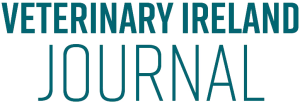UCD Research - May 2022
Managing self during a PhD: Exploring the development of Intrapersonal skills
Any qualified professional, whether they be from a veterinary or medical background, will have experienced working as part of a team in either a practice or hospital setting. All professionals want to be effective team workers, who are valued and respected for their professional role in the team. To help students develop their interprofessional skills prior to graduation, third level undergraduate programmes are now incorporating an interprofessional skills curriculum
In association with

Dr Sandra Aungier
MVM, PhD, Prof Dipl. UTL, Lecturer in Veterinary Nursing, School of Veterinary Medicine, University College Dublin
Dr Jane Irwin
BA, PhD, Prof. Dipl. UTL, Assistant Professor, School of Veterinary Medicine, University College Dublin
Dr Arun Kumar
DBA, DVM, MVSc (Pharmacology and Toxicology), PhD (Pharmacology), Prof. Cert. UTL, Assistant Professor, School of Veterinary Medicine, University College Dublin
While one’s interprofessional skills are essential for helping you collaborate and work with other professionals, the ability to develop this skillset is dependent on having good intrapersonal skills.
BENEFITS OF INTRAPERSONAL SKILLS
In contrast to interpersonal skills, which relate to how people communicate with each other, intrapersonal skills involve how people communicate within themselves, through their own thoughts and perception of the world around them. Valerie Hannon, in her book, Thrive, describes this as creating a secure sense of self and well-being. Once these skills are present, people can cope with changing conditions and solve the myriad problems that life presents.
Intrapersonal skills involve the ability of individuals to guide themselves towards goals. As part of this, they include the ability to monitor, direct attention, and change behaviour to attain a desired objective. This links to the ability to plan, assess what is needed in a situation, and generate thoughts and feelings that guide them in this regard. This implies an open and flexible approach, modified when required, and strong self-awareness, including strengths and weaknesses.
With the secure sense of self, goes self-confidence, enabling people to believe in their own ability to achieve, and convince others of their capabilities. People can be challenged by factors in their environment, including adverse social, relationship or financial conditions. Life also provides distractions, which can prevent individuals attaining their goals. Self-regulation, an essential part of intrapersonal skills, is essential to keep people on track. This requires self-discipline. It also requires resilience – the ability to withstand adversity and keep going. All these skills and insights provide enormous benefits both to students and professionals, in the professional and personal realm.
BENEFITS OF CROSS CULTURAL COMPETENCE
Between 2015 and 2018, the Irish Central Statistics Office has confirmed that there was a net migration into Ireland. Ireland is becoming a multicultural society. Like other Irish educational institutions, University College Dublin would be considered a global university. It has over 8,500 international students and 32 per cent of staff are international.
The equality, diversity, and inclusion initiative by higher education establishments in Ireland continues to support a culturally diverse audience in our teaching and learning environment. This diversity in our teaching and learning environment offers an excellent opportunity to everyone to engage and learn from people across different cultural backgrounds. While such an engagement comes naturally to someone experienced with cultural diversity, for those who are not experienced, cross cultural competence training offers necessary and timely intervention.
The need for cross cultural competence has specifically increased under virtual working environments where the lack of physical barriers has facilitated interactions with a wider cohort of audience often from varying cultural diversity. Hence knowledge and training in cross cultural competence has become vital. In its widest definition, cross cultural competence involves gross comprehension of the behaviours, values, traits, styles, tones, similarities, and differences that are prevalent across different cultures. While a lifetime of learning may not be enough to fully comprehend such cultural similarities and/or differences, an attempt to get general perception of cultural diversity seems to offer open-mindedness, reduce unconscious bias, and eventually contribute to improved communication across cultures.
Cross cultural competence programmes offer immediate impact through a positive adjustment to one’s behaviour by becoming self-aware of one’s own culture while being sensitive and appreciative of cultural differences that exist within the teaching and learning environment. Such mutual awareness of similarities and/or differences across cultures enhances respect for one another devoid of any unconscious bias towards an individual’s identity, which will eventually enhance connections, engagement and collaborations for optimal teaching and learning.
PhD STUDENT WORKSHOP INITIATIVE
A pilot workshop is being initiated in UCD for PhD students and is being co-led by three academics from the School of Veterinary Medicine (see panel, page 260). This postgraduate cohort were chosen since doing a PhD is recognised as being a challenging time, a time when knowing how to cope with anxiety and stress is desirable. These students have a 2.43 times higher risk of developing a psychiatric disorder than the rest of the highly educated population!
Using an experiential approach to learning, which combines individual and group activities and discussions, the workshop will explore with students how a ‘fear of failure’ shapes how people feel about themselves. To overcome this fear, students will be shown how to develop their “Intrapersonal skills” which, in turn, will lead to having a greater confidence in themselves. This growing confidence will result in a person communicating with a confidence, that is not offensive but is effective, when participating in interprofessional teamwork.
The workshop will also explore with the students what are the problems and coping strategies associated with cultural diversity in a globally-renowned community such as UCD. A person’s brain is prone to unconscious biases that can lead to pre-judging a situation or person and playing into cultural stereotypes or assumptions. Students will be advised re: unconscious biases and the need to avoid them to develop a trusting attitude when working together in a team with members from other professions.
Overall, it is hoped that the workshop will achieve an increased awareness of how to manage emotions (such as fear of failure), and how to have positive and constructive communication with others without holding an unconscious bias against them.
In association with

Dr Sandra Aungier
MVM, PhD, Prof Dipl. UTL, Lecturer in Veterinary Nursing, School of Veterinary Medicine, University College Dublin
Dr Jane Irwin
BA, PhD, Prof. Dipl. UTL, Assistant Professor, School of Veterinary Medicine, University College Dublin
Dr Arun Kumar
DBA, DVM, MVSc (Pharmacology and Toxicology), PhD (Pharmacology), Prof. Cert. UTL, Assistant Professor, School of Veterinary Medicine, University College Dublin









